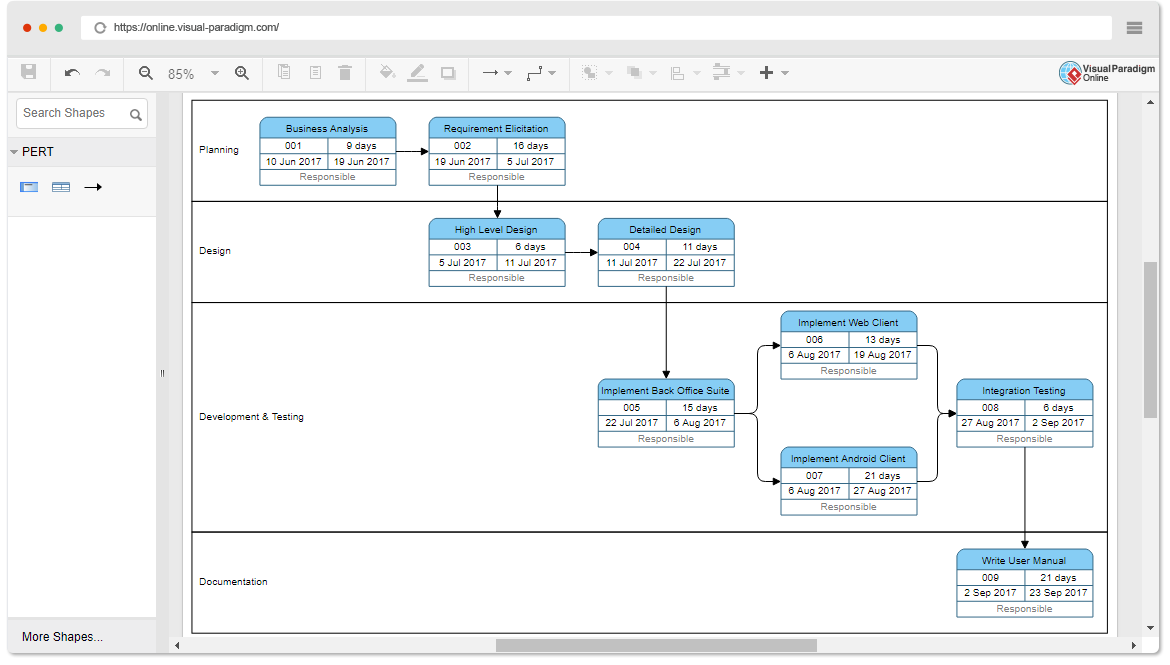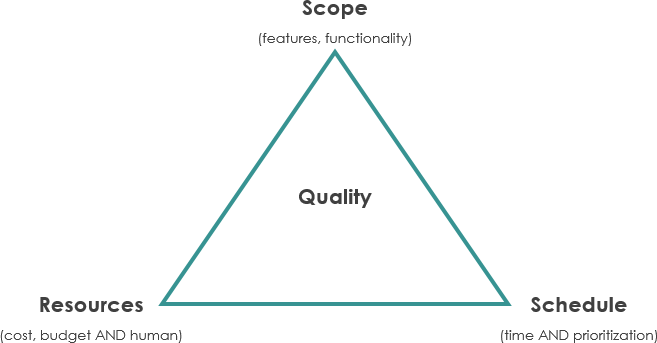Learn how to develop Quality and IV&V Plan. Describes how quality will be managed throughout the whole project management cycle.
Continue reading
Uczenie się jednej nowej rzeczy każdego dnia


Learn how to develop Quality and IV&V Plan. Describes how quality will be managed throughout the whole project management cycle.
Continue reading
PERT Chart is acronym for (Program Evaluation and Review Technique). A PERT chart is a project management tool used to schedule, organize, and coordinate tasks within a project. It is basically a method to analyze the tasks involved in completing a given project, especially the time needed to complete each task, and to identify the minimum time needed to complete the total project.
Continue reading
PERT diagrams show each task in a project as a node. Dependencies between tasks (for example, one task needs to be completed before another can be started) can be clearly shown through connections between task nodes. It also shows time information for each task, similar to the critical path approach (CPM), which determines the longest path for a project and thus the minimum time for the project to complete.
Continue reading
Businesses, large and small, unquestionably juggle numerous projects, plans, tasks and people. The primary purpose of project management software is to help managers plan, execute and control all aspects of the project management process (such as PMBOK or PRINCE2). Visual Paradigm helps your team to kick-start any size of IT projects with automated guide-through process, with step-by-step instruction, input references and samples.
Continue reading
The project imitation document defines the project scope, management, and overall success criteria that the team can look back on during the project. It contains basic information about the project, such as context, scope, team and collaboration. It is equally important as an internal guide and an external stakeholder
Continue reading
A communication plan is a policy-driven approach to providing information to stakeholders. The plan formally defines who should receive specific information, when that information should be provided, and what communication channels will be used to provide the information.
Continue reading
Modern and effective project management techniques require skills that allow the seamless integration of best practice tools with good leadership and team management within an organization for improving the likelihood of success of time-limited initiatives. These practices include establishing clear accountabilities, defining objectives and outcomes, establishing the scope, planning, monitoring, and reporting controls for project activities.
Continue reading
Learn how to develop a Communications Plan. Lists the information needs of stakeholders, and describes how these needs can be satisfied through appropriate communications activities.
Continue reading
Learn how to develop a Procurement Plan. Identifies how project needs can best be fulfilled by procuring products and services outside. Procurement Plan describes how the various aspects of procurement will be managed from the beginning to the end of the project.
Continue reading
Learn how to develop Change and Configuration Management Plan. Changes must be vetted and managed to ensure that they are within the project scope and are communicated to all stakeholders. This document identifies the project components that are governed by the change control process, and the documentation of change process.
Continue reading